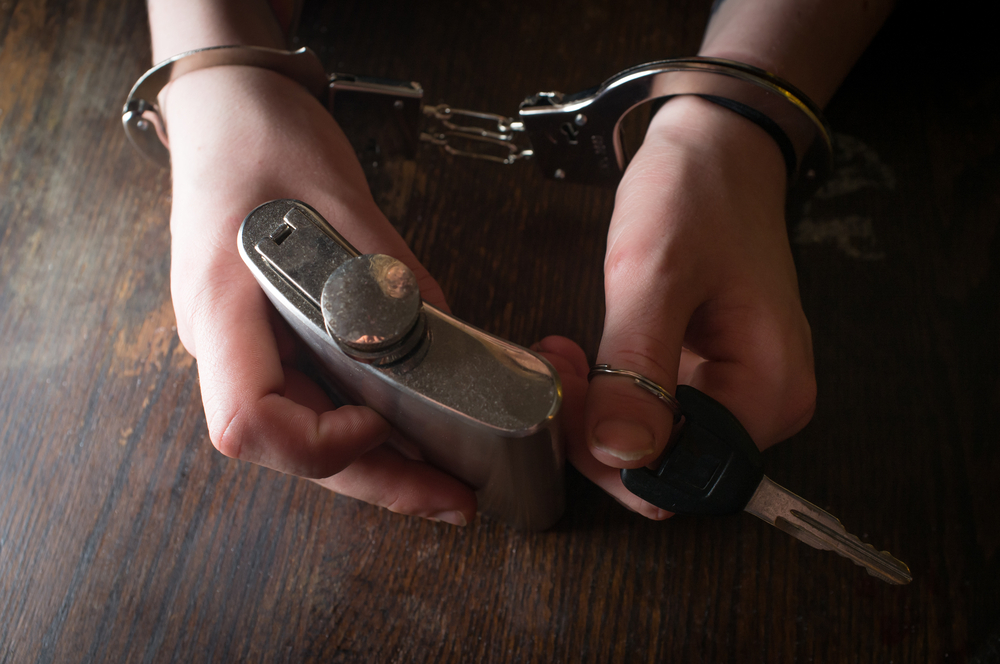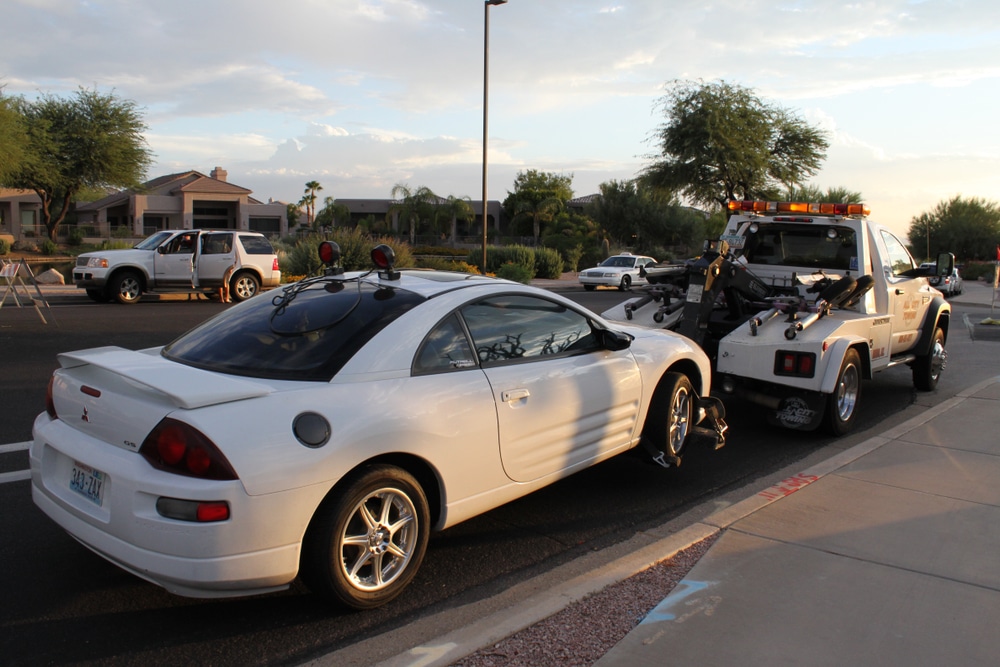
After an officer determines that there is probable cause to make an arrest for underage DUI, they will inform the suspect of their Miranda rights. The first of these rights is the right to remain silent. This means that the suspect is not required to answer any questions or provide any information to the officer. The officer will advise the suspect that anything they say can be used against them in court, so it is important to exercise this right and remain silent until an attorney is present.
The second Miranda right is the right to an attorney. The officer will inform the suspect that they have the right to have an attorney present during any questioning or legal proceedings. If the suspect cannot afford an attorney, one will be appointed for them free of charge. This right is crucial for underage suspects who may not fully understand the legal system or the consequences of their actions.
The officer will also advise the suspect that anything they say can be used as evidence against them in court. This is known as the “use of statements” warning and is designed to ensure that suspects understand the potential consequences of speaking without an attorney present. Even seemingly innocent statements or explanations can be twisted or taken out of context by prosecutors, so it is important for suspects to remain silent and wait for an attorney’s guidance.
Throughout the arrest process, it is crucial for underage suspects to remain calm and respectful towards the officer. Resisting arrest, arguing, or becoming confrontational will only make the situation worse and could result in additional charges. Even if the suspect believes they have been wrongfully arrested or mistreated, it is important to comply with the officer’s instructions and save any complaints or challenges for later, with the help of an attorney.
Underage suspects who choose to speak to the officer without an attorney present risk incriminating themselves or providing evidence that can be used against them in court. They may inadvertently admit to drinking, provide details about their activities leading up to the arrest, or make other statements that could strengthen the case against them. It is always best to invoke the right to remain silent and wait for an attorney’s advice before answering any questions or providing any information.
One of the key differences between underage and adult DUI arrests is the involvement of parents or guardians. Officers are required to contact a juvenile suspect’s parents or legal guardians as soon as possible after the arrest. This is to ensure that the suspect has adult support and guidance throughout the legal process and to help protect their rights and interests.
Another important consideration for underage DUI suspects is the potential involvement of the juvenile justice system. Depending on the suspect’s age, criminal history, and the severity of the offense, their case may be handled by the juvenile court rather than the adult criminal justice system. This can have significant implications for the legal process, sentencing, and long-term consequences of the arrest.
After informing the suspect of their Miranda rights, the officer will typically place them in handcuffs. This is done for both the safety of the officer and the suspect, as well as to prevent the suspect from attempting to flee or resist arrest. Handcuffing is a standard procedure in most arrests and does not necessarily indicate that the suspect is dangerous or guilty.
Once the suspect is handcuffed, the officer will conduct a pat-down search of their person. This is to check for any weapons, drugs, or other contraband that the suspect may be carrying. The officer will feel the suspect’s clothing and pockets for any hard or bulky objects that could pose a threat or be used as evidence. If any illegal items are found, they will be seized and may result in additional charges.

If the suspect’s vehicle is going to be towed from the scene, the officer will also conduct an inventory search of the vehicle. This is to document any valuable items or potential evidence that may be inside the vehicle and to protect the police department from claims of theft or damage. The officer will typically search the passenger compartment, trunk, and any other areas where personal property may be stored.
During the inventory search, the officer will also be looking for any visible evidence of the DUI offense. This may include open containers of alcohol, drug paraphernalia, or other items that suggest the suspect was drinking or using drugs prior to the arrest. Any evidence found will be seized and documented for use in court.
If the suspect’s vehicle is not able to be safely driven from the scene, the officer will arrange for it to be towed. This is typically done by contacting a local towing company that has a contract with the police department. The towing company will send a truck to the scene to remove the vehicle and store it at their facility until it can be retrieved by the owner.
As mentioned earlier, the officer will conduct an inventory search of the vehicle before it is towed. This is to document any valuable items or potential evidence that may be inside the vehicle and to protect against claims of theft or damage. The officer will create a detailed list of the vehicle’s contents, including any damage or unusual items.
Once the vehicle has been towed, the officer will provide the suspect with information on how to retrieve it after they are released from custody. This will typically include the name and contact information of the towing company, as well as any fees or paperwork that will need to be completed to get the vehicle back. The suspect may also need to show proof of ownership and insurance to retrieve the vehicle.

After the suspect has been handcuffed and searched, they will be placed in the back of the officer’s patrol car for transport to the police station or jail. The suspect will typically be seated in the back seat, which is separated from the front of the vehicle by a partition. This is for the safety of both the officer and the suspect.
As mentioned earlier, officers are required to contact a juvenile suspect’s parents or legal guardians as soon as possible after the arrest. This contact will typically be made while the suspect is being transported to the station, either by the arresting officer or another member of the department. The officer will inform the parents or guardians of the situation and the specific charges that the suspect is facing.

The officer will also request that the parents or guardians come to the station as soon as possible to be present for the booking process and any questioning. Having a parent or guardian present can help ensure that the suspect’s rights are protected and that they have adult support and guidance throughout the process.
During the call, the officer will also explain the booking and release process to the parents or guardians. This will include information on how long the suspect is likely to be held in custody, any bail or bond requirements for release, and the potential next steps in the legal process. The officer will also provide contact information for the department and any relevant personnel.
If the suspect refuses to take an evidential breathalyzer test at the station, the officer may invoke the state’s Implied Consent law. This law states that by driving on public roads, a person has implicitly consented to chemical testing if they are suspected of DUI. Refusal to take the test can result in automatic license suspension and other penalties, regardless of whether the person is ultimately convicted of DUI.
The officer will explain the consequences of refusing the evidential breath test, which may include longer license suspension periods and higher fines compared to failing the test. They will also inform the suspect that their refusal can be used as evidence against them in court, as it may suggest consciousness of guilt.
Before invoking the Implied Consent law and marking the suspect as a refusal, the officer will give them the opportunity to contact an attorney for advice. This is because the decision to refuse the test can have significant legal consequences, and the suspect should have the chance to understand their rights and options fully.
Throughout the transportation process, the officer will document any statements or admissions made by the suspect. Even casual conversation or spontaneous utterances can be used as evidence in court, so it is important for the officer to keep a record of everything that is said. This documentation can help build the case against the suspect and may be used to challenge any claims of innocence or mitigating circumstances.
Upon arrival at the police station or jail, the suspect will be turned over to the custody of the booking officers. These officers will be responsible for processing the suspect and completing the necessary paperwork and procedures. This is a critical transition point in the arrest process, as it marks the formal beginning of the suspect’s time in custody and sets the stage for the legal proceedings to come.
The arresting officer will provide the booking officers with a summary of the case, including the specific charges, the suspect’s behavior and statements, and any evidence collected. The booking officers will then begin the process of formally documenting the arrest, searching the suspect more thoroughly, and collecting personal information and biometric data.
This transition to the booking process can be a stressful and intimidating experience for underage suspects, who may feel overwhelmed and frightened by the unfamiliar surroundings and procedures. The presence of a parent or guardian can be invaluable at this stage, providing emotional support and ensuring that the suspect’s rights are protected.
As the booking process begins, it is important for underage suspects and their families to remember that this is just the first step in what may be a long and complex legal journey. The decisions made and actions taken at this stage can have significant implications for the outcome of the case, so it is crucial to approach the situation with care, caution, and the guidance of experienced legal counsel.
At DUI 101, our mission is to empower you with the knowledge needed to make informed decisions during this challenging time. Explore our articles and guides to better understand your situation and the steps ahead.
© 2024 Chapman SEO LLC. This website is for educational and informational purposes only. All content is created using AI technology and maintained by non-lawyers and should not be considered legal advice. The information provided is general in nature and may not be suitable for your specific situation. Always consult with a qualified legal professional for advice regarding your individual circumstances. We do not create attorney-client relationships through this website. By using this site, you acknowledge that you have read and understand these terms.